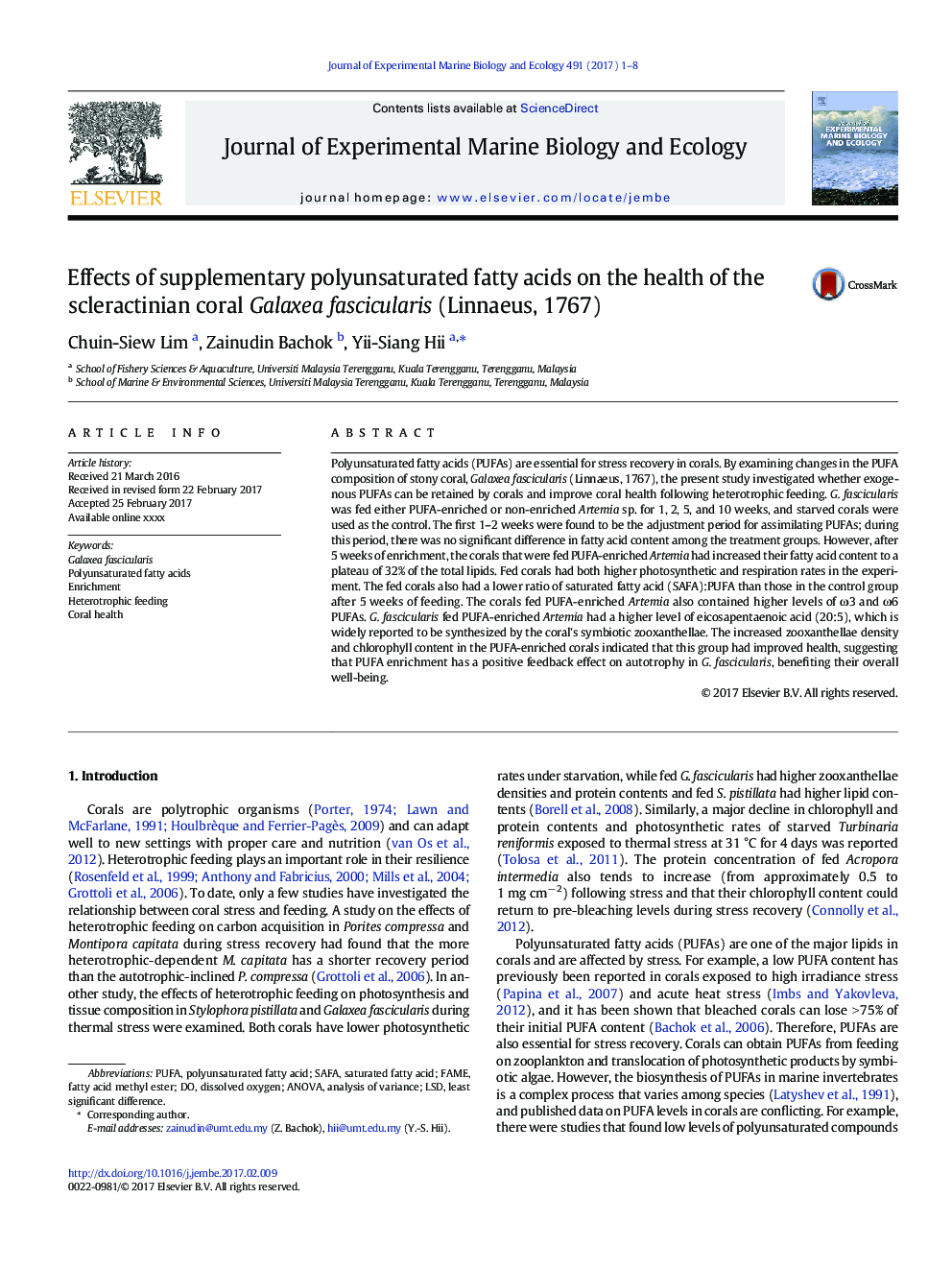| Article ID | Journal | Published Year | Pages | File Type |
|---|---|---|---|---|
| 5744452 | Journal of Experimental Marine Biology and Ecology | 2017 | 8 Pages |
Abstract
Polyunsaturated fatty acids (PUFAs) are essential for stress recovery in corals. By examining changes in the PUFA composition of stony coral, Galaxea fascicularis (Linnaeus, 1767), the present study investigated whether exogenous PUFAs can be retained by corals and improve coral health following heterotrophic feeding. G. fascicularis was fed either PUFA-enriched or non-enriched Artemia sp. for 1, 2, 5, and 10Â weeks, and starved corals were used as the control. The first 1-2Â weeks were found to be the adjustment period for assimilating PUFAs; during this period, there was no significant difference in fatty acid content among the treatment groups. However, after 5Â weeks of enrichment, the corals that were fed PUFA-enriched Artemia had increased their fatty acid content to a plateau of 32% of the total lipids. Fed corals had both higher photosynthetic and respiration rates in the experiment. The fed corals also had a lower ratio of saturated fatty acid (SAFA):PUFA than those in the control group after 5Â weeks of feeding. The corals fed PUFA-enriched Artemia also contained higher levels of Ï3 and Ï6 PUFAs. G. fascicularis fed PUFA-enriched Artemia had a higher level of eicosapentaenoic acid (20:5), which is widely reported to be synthesized by the coral's symbiotic zooxanthellae. The increased zooxanthellae density and chlorophyll content in the PUFA-enriched corals indicated that this group had improved health, suggesting that PUFA enrichment has a positive feedback effect on autotrophy in G. fascicularis, benefiting their overall well-being.
Keywords
Related Topics
Life Sciences
Agricultural and Biological Sciences
Aquatic Science
Authors
Chuin-Siew Lim, Zainudin Bachok, Yii-Siang Hii,
